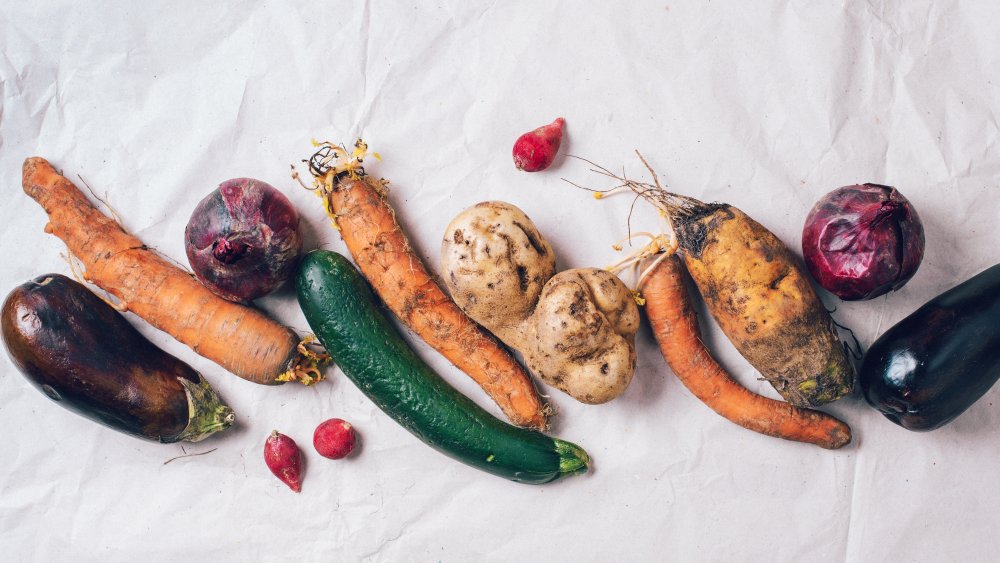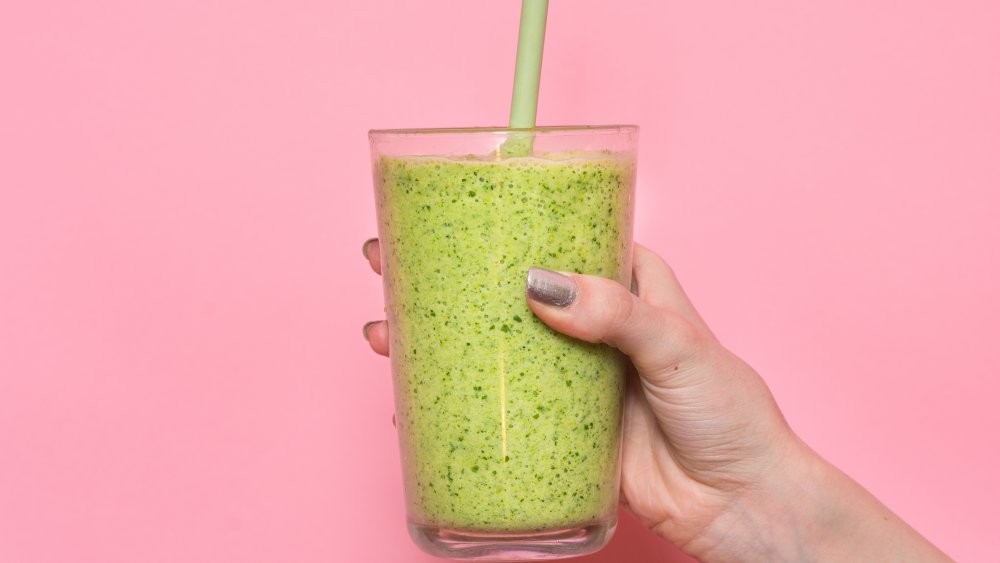The Real Reason You Should Be Saving Brown Vegetables
Everyone has had a few vegetables that have turned brown before they could be used. While it's tempting to toss them in the trash, there are plenty of ways to use them despite their less-than-fresh appearance. Though it's possible to salvage brown vegetables, it's also worth knowing how and why they turn brown.
Apart from aging before you could use them, vegetables can also turn brown more quickly when they are bruised or damaged. When this happens, an enzyme called polyphenol oxidase becomes exposed to the air and reacts to the oxygen, which is what causes brown spots to appear (via Recipe Tips). So, if you drop or bump a vegetable while working in the kitchen, plan on using it sooner rather than later.
Though there are solutions to keep some produce from turning brown after it's been cut, damaged or overly ripe vegetables are best used as soon as possible. Luckily, there are quite a few ways to prepare those vegetables both in cooked dishes and in raw dishes.
Ways to use brown vegetables
One of the best ways to use brown vegetables is to cook them in dishes because the produce needed for these recipes usually doesn't have to be incredibly fresh. Such produce can be used in dishes like soups, stir-fries, baked goods, and more. For example, use a browning zucchini in zucchini bread or slice it up for a rustic vegetable soup (via Vitamix).
You can also make some sauces or condiments with vegetables that are turning brown. Leafy greens that are starting to brown, like spinach or kale, can be added to pesto. Other vegetables, like overly ripe tomatoes, onions, or carrots can also be added to a marinara, and if you have peppers starting to brown, use those to make hot pepper jelly.
Brown vegetables are also great in juices and smoothies where the color really doesn't matter much and other ingredients are blended into the flavor. Greens, beets, and carrots are all great additions to blended drinks (via Food Network).
So, just because your vegetables turned brown doesn't mean they're destined for the trash or your kitchen compost. The nutrients are still there, even if the produce is brown, so get creative with how you use it.

